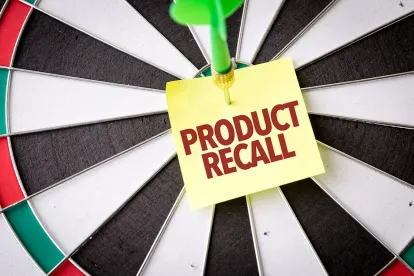GreenGate Fresh’s romaine lettuce might once have made you ill, but their recent victory in the New York Appellate Division certainly won’t. GreenGate was one of many lettuce producers forced to recall their lettuce amidst two E. Coli outbreaks in 2018. GreenGate sought coverage for the recall from its insurer, Houston Casualty Company, who denied coverage, contending that the government recall was not specifically directed at GreenGate. The trial court disagreed and entered judgment in favor of GreenGate. The New York Appellate Division affirmed, finding it irrelevant that GreenGate was not specifically named in the government’s recall recommendation.
Background
E. Coli outbreaks linked to romaine lettuce occurred in April and November of 2018. The FDA and CDC traced the first outbreak to lettuce from Yuma, Arizona and the second outbreak to the central coast of California. In both cases, the government was unable to identify a specific company as the source of the outbreak, and requested that all companies selling lettuce from those regions recall their product. GreenGate sourced lettuce from both regions and recalled its product in each instance.
GreenGate submitted two claims—one for each outbreak—under the product contamination insurance policy that it purchased from Houston Casualty. GreenGate specifically sought coverage under the Government Determination Endorsement, which provides coverage for losses resulting from:
a determination by a responsible government authority that there is a reasonable probability that the consumption or use of a specifically identified Product of the Insured either has resulted, or would result in clear and identifiable symptoms of Bodily Injury to any person(s) or animal(s).
Houston Casualty denied coverage. It argued that the endorsement requires the government to “specifically identif[y]” GreenGate’s product by name in the recall determination to trigger coverage. Instead, the government only issued (in Houston Casualty’s words) “general advisories about lettuce from the Yuma, Arizona and central coast of California growing regions.” This, Houston Casualty argued, was insufficient. The insurer also argued that the government’s determination did not link GreenGate’s lettuce to bodily injury and GreenGate provided no evidence that anyone became ill by consuming its lettuce.
The Decision
In an oral ruling, Judge Andrea Masley of the Supreme Court found that the government’s determination specifically identified romaine lettuce, which was a product of GreenGate. The court found that determination to be specific enough to trigger coverage, since the policy contained no requirement that it specifically mention GreenGate or that GreenGate test its lettuce for E. Coli to trigger coverage.
Houston Casualty appealed, and the Appellate Division affirmed. The Court explained:
Contrary to defendant’s contention, nothing in the plain language of the endorsement required that governmental authorities specifically identify plaintiff’s product as the contaminated product in order for coverage to be triggered (see Maroney v New York Cent. Mut. Fire Ins. Co., 5 NY3d 467, 473 [2005]). The determinations of the CDC and FDA implicated plaintiff’s product during the April 2018 outbreak by identifying the growing region where plaintiff sourced its romaine lettuce, and during the November 2018 outbreak by calling for the withdrawal and destruction of all romaine lettuce. Furthermore, under the circumstances, the governmental authorities could have reasonably found that there was a “reasonable probability” that consumption of plaintiff’s lettuce would result in bodily injury. Indeed, defendant’s own expert testified that it was prudent for plaintiff to withdraw its product from distribution during the outbreaks.
GreenGate Fresh LLP v. Houston Cas. Co., 2023 N.Y. Slip Op. 02846, 2023 WL 3696470, at *1 (N.Y. App. Div. 1st Dep’t May 30, 2023). The Court found that this interpretation complied with both the plain language of the policy and the “reasonable expectations” of the policyholder. Id.
Analysis
It is not uncommon in product recall cases for insurers to take the same approach that Houston Casualty did with GreenGate: attempting to narrow coverage by arguing that a government recall must identify the policyholder and its product by name. But such an approach is entirely impractical when it comes to agricultural products or other commodity products with complex supply chains, and it is for that reason that the pertinent policy wording contains no such onerous requirement. GreenGate’s romaine lettuce is virtually indistinguishable from romaine lettuce sold by its competitors. Additionally, no single company controls the entire supply chain from farm to table. This makes it burdensome, if not impossible, to determine the exact origin of food contamination. The government determined the region from which the contaminated lettuce originated but was apparently unable to trace the lettuce to a more specific source. Houston Casualty’s position would have forced GreenGate to conduct an additional investigation beyond that conducted by the government or forego coverage. Assuming such an investigation was even possible, it would likely have been very costly and time-consuming.
The insurer’s position, if accepted, would have effectively hollowed out coverage and rendered the Government Determination Endorsement meaningless. The Court rightfully rejected this position. This is good news for food producers and other distributors of products that are comingled after entering the chain of distribution and not easily identified.
Houston Casualty’s argument that there was no coverage unless GreenGate could prove that someone was injured by their product also undermines public health concerns. The point of a recall is to prevent injuries. If companies are unable to obtain product and recall coverage unless or until injury occurs, consumers will be put at risk as companies would be incentivized to delay the recall until an injury actually occurs and defeat the prophylactic purpose of government oversight and regulation. GreenGate should serve as a reminder to insurers to not reflexively deny coverage in the face of a commodity recall. The decision should also serve as a reminder for policyholders that they should promptly retain experienced coverage counsel when faced with such a reflexive denial of coverage.




 />i
/>i

